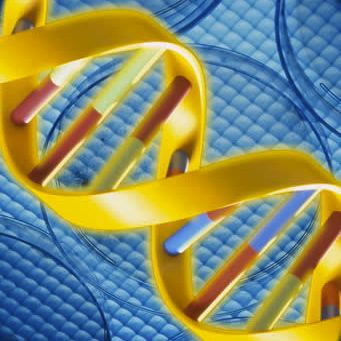Women & Infants Offers Advanced Hereditary Testing
Thursday, May 16, 2013
New tests called “next-generation sequencing” are now available through the Cancer Risk Assessment and Prevention Program in the Program in Women’s Oncology at Women & Infants Hospital of Rhode Island. They are an extension of genetic tests that many women with a history of uterine, colon, ovarian, breast, or other cancers undergo to see if they possess a genetic mutation that predisposes them to the disease.
Next-generation sequencing has become available due to recent advances in testing that broaden the scope of genetic analyses, uncovering any additionally genetic mutations associated with the considered cancers, as well as using this information to make connections with a woman's increased risk of other cancers. Previously, families with a strong cancer history would often need to undergo multiple rounds of genetic testing before a mutation was found. This new technology makes it possible to test individuals for mutations in multiple genes in a single analysis (one blood draw).
“The new panels simultaneously analyze 14 to 19 additional genes linked to increased risk of uterine, colon, ovarian, breast and other cancers,” explains Robert D. Legare, MD, director of the Cancer Risk Assessment and Prevention Program and the hospital’s Breast Health Center.
GET THE LATEST BREAKING NEWS HERE -- SIGN UP FOR GOLOCAL FREE DAILY EBLASTHe says this means that for women whose genetic predisposition to breast and ovarian cancer might go undetected because they do not have a mutation of the more commonly analyzed BRCA1 or BRCA2 gene, they can learn that they are at increased risk for breast cancer due to other genetic factors. However, the counseling process becomes critical with these new tests as they include novel genes that have limited available information regarding their associated cancer risk and management.
“Next-generation sequencing probes one level further into an individual’s genetic structure, finding more answers for these women,” Dr. Legare says. “That’s our main objective–to find the answers for them and help them strategize accordingly.”
Having the added level of testing is important, as providers work with the patients to determine what risk-reducing strategies and treatment to follow. Some recommendations might be altered based on her identified risk for additional cancers, Dr. Legare explains.
The Cancer Risk Assessment and Prevention Program addresses concerns men and woman have about the risk of developing cancer. Genetics counselors discuss blood test results with the patient and his or her family and determine a course of action. This might include steps such as mastectomy or simply more regular monitoring of her health.
For more information about genetic testing through the Cancer Risk Assessment and Prevention Program at Women & Infants, or to make an appointment with one of the genetic counselors, call (401) 453-7540. Counselors from the Program also see patients at The Breast Health Center at Kent, a collaborative program between Women & Infants and Kent Hospital in Warwick, and at Oncology Hematology Associates in Westerly, which is affiliated with Women & Infants. Appointments can be made at either of these locations by calling the Women & Infants number.
Related Articles
- Miriam Hospital Offers Lecture Series for Cancer Survivors
- NEW: Whitehouse Holds Roundtable Discussion to Announce Legislation to Battle Breast Cancer
- Women & Infants Fellow Honored for Breast Cancer Research
- Women & Infants Helps Cancer Survivors Conceive
- Women & Infants Honored by Commission on Cancer
- Women & Infants: Preserving Fertility for Life After Cancer
- GoLocalTV: 7 Year Old Cancer Survivor Drafted By PC Friars



